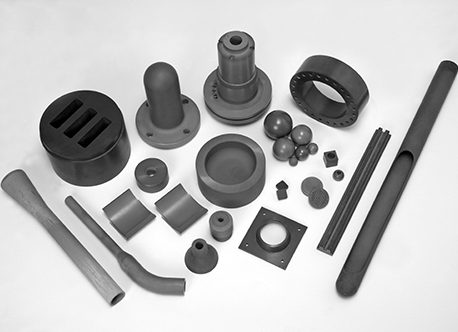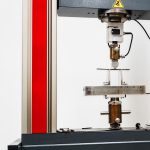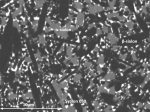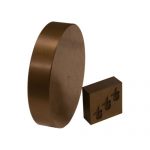In the field of material technology, nonoxide technical ceramics are among the most recent developments. They are increasingly being used for a range of applications thanks to their chemical, thermal, and mechanical properties. Both sialon and silicon carbide (SiC) ceramics are useful candidates for energy conversion and production. Already, they have shown exceptional prowess in abrasive environmental applications and those which involve harsh chemicals. So, what are the differences between sialon and silicon carbide, and which applications does each best serve? Here, International Syalons takes a closer look.
Sialons – An Overview
Sialons are an advanced form of silicon nitride-based ceramic. They are among the most durable and strong ceramic materials available for use today. Thanks to their impressive properties, they can compete effectively with other types of well-established engineering refractories and ceramics. These include alumina, silicon carbide, and zirconia. In a range of industrial applications, sialons are a better choice than these other options.

There are several grades of sialon that International Syalons manufactures. These include:
- Syalon 101 – This β-sialon grade offers the optimal combination of this material’s properties. It’s exceptionally hard, tough, and strong and is very resistant to corrosion. Syalon 101 is typically used in molten non-ferrous metal handling as thermocouple protection sheaths, as well as wear pins and extrusion dies.
- Syalon 050 – This α/β-grade sialon is ideal for high-temperature and wear applications. Its extreme hardness combines with impressive strength. This makes it ideal for use in any application up to 1,400°C in air. Some of the most common applications that use Syalon 050 include those for shot blast nozzles. They can also be used for thermocouple protection sheaths in high-temperature alloys.
- Syalon 110 – This composite grade was originally created to be a break ring in continuous horizontal steel casting. It has outstanding corrosion resistance and is resistant to thermal shock. This makes it suitable for use in applications up to temperatures of 1,450°
- Syalon 501 – This composite grade ceramic is electrically conductive while also boasting silicon nitride’s excellent mechanical properties. Exceptionally hard, tough, and strong, Syalon 501 can be electro-discharge machined into complex shapes.
Silicon Carbide – An Overview
Silicon carbide is a synthetically produced, exceptionally hard crystalline technical ceramic formed from carbon (C) and silicon (Si). For more than a century, industries have used silicon carbide for a range of applications. These include cutting tools and grinding wheels. It is also commonly found in sandpaper. In recent times, industries have used it in heating elements and refractory linings for furnaces in industrial environments. It is also used in rocket engines and the wear-resistant parts of pumps. In addition, you will find it in the semiconducting substrates of light-emitting diodes.
Silicon carbide remained the hardest synthetic material available until 1929. As well as its exceptional hardness, it also has an outstandingly high thermal conductivity. This, together with its chemical reaction resistance and low thermal expansion, makes it ideal for use in refractories and in manufacturing high-temperature bricks. Silicon carbide is also a semiconductor. It has electric conductivity which is between that of insulating materials and metals. As a result, it is an ideal substitute for silicon and other traditional semiconductors in a high-temperature application.
Which Is Most Effective: Sialon or Silicon Carbide?
Industries require harder and stronger heat- and wear-resistant materials which operate in hostile environments at low cost. For this reason, alternative materials are in high demand. Sialon is one such ceramic which has proven to have a host of uses across many industries. These include:
- Industrial wear applications, e.g., extrusion dies and shot blast nozzles
- Molten metal handling applications, e.g., heater and riser tubes and thermocouple protection sheaths
- Metal forming applications, e.g., welding, cutting tips, and pins
- Gas and oil applications, e.g. metering valves and hydrocyclones
- Chemical and process industry applications, e.g., impellers and mechanical seals
Although both silicon carbide and sialon have a range of applications, sialon remains a more cost-effective solution, particularly where high strength is required. Sialons have unique physical properties, including exceptional toughness, high strength, corrosion resistance, and resistance to thermal shock. As a result, they lead the way in industrial applications. If you would like any more information about the applications or properties of sialons or silicon carbide, simply contact a member of the International Syalons team today.



